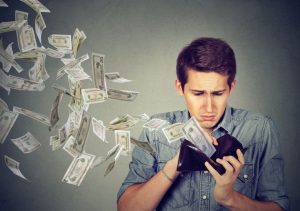Naira to Dollar Black Market
In the ever-fluctuating landscape of global economics, one phenomenon that holds a constant fascination is the exchange rate between currencies. For Nigeria, a nation with a rich history and a rapidly evolving economy, the exchange rate between its currency, the Naira, and the US Dollar has been a topic of significant interest. This article delves into the intriguing world of the Naira to Dollar exchange rate on the black market, exploring its causes, impacts, and implications for individuals and the economy as a whole.
Understanding Exchange Rates
What are Exchange Rates?
Exchange rates represent the value of one currency in terms of another. They play a pivotal role in international trade, investment, and financial transactions. The Naira to Dollar exchange rate, for instance, reflects how many Naira are needed to purchase one US Dollar.
Factors Influencing the Naira to Dollar Black Market Exchange Rate
Economic Factors
Economic indicators such as inflation, interest rates, and economic growth greatly impact exchange rates. A high inflation rate in Nigeria can erode the purchasing power of the Naira, causing it to weaken against the Dollar on the black market. Also, read some about sports The Journey of the Morocco National Football Team
Political Stability
Political instability can create uncertainty in the economy, leading to a lack of investor confidence. This, in turn, can result in a weaker Naira against the Dollar as investors seek safer assets.
Oil Prices
Nigeria’s economy is closely tied to oil exports. Fluctuations in global oil prices can have a profound effect on the Naira’s value, as oil revenue significantly contributes to the country’s foreign exchange reserves.
The Black Market Phenomenon
What is the Black Market?
The black market, often referred to as the parallel market, is an unofficial platform where currencies are traded outside the purview of official exchange rates. In Nigeria, the Naira to Dollar black market rate tends to be higher than the official rate due to various factors.
Demand and Supply Dynamics
Limited access to foreign exchange in official channels can create a surge in demand on the black market. When demand surpasses supply, the Naira’s value weakens against the Dollar, resulting in a higher black market rate.
Impacts on the Economy and Individuals
Economic Instability
A wide gap between the official and black market rates can lead to economic instability. It can encourage capital flight and discourage foreign investment, hindering economic growth.
Inflationary Pressures
A weaker Naira can lead to higher import costs, causing inflation to rise. This can strain the purchasing power of individuals and erode their savings.

Government Interventions and Policies
Central Bank Interventions
Governments often intervene to stabilize exchange rates. Nigeria’s Central Bank occasionally intervenes in the foreign exchange market to regulate the Naira’s value and bridge the gap between official and black market rates.
Import Restrictions
To curb excessive demand for foreign currency, governments may impose restrictions on certain imports. While this can help balance the trade deficit, it also poses challenges for businesses reliant on these imports.
Navigating the Exchange Rate Landscape
Risk Mitigation for Businesses
Businesses exposed to exchange rate risk can employ strategies such as hedging or forward contracts to safeguard against sudden currency fluctuations.
Diversification of Revenue Sources
Reducing reliance on a single revenue source, such as oil exports, can make the economy more resilient to external shocks and exchange rate volatility.
Conclusion
In the intricate dance of exchange rates, the Naira to Dollar black market rate stands as a complex indicator of economic health and stability. Economic, political, and global factors combine to shape this dynamic relationship, influencing both the broader economy and the daily lives of individuals. By understanding these dynamics and exploring strategies for resilience, Nigeria can navigate the challenges of exchange rate fluctuations and strive for sustained growth.
FAQs
Q1: Why is the Naira to Dollar black market rate higher than the official rate?
The black market rate is influenced by factors such as limited access to official channels, high demand for foreign exchange, and supply shortages.
Q2: How does political instability impact the exchange rate?
Political instability creates uncertainty, leading to decreased investor confidence and potential currency depreciation.
Q3: Can individuals benefit from exchange rate fluctuations?
Individuals can benefit from favorable exchange rate fluctuations by timing their currency conversions strategically.
Q4: What role does oil play in the Naira’s value?
Nigeria’s economy heavily relies on oil exports, making it susceptible to global oil price fluctuations.
Q5: How can the government stabilize exchange rates?
Governments can intervene through central bank actions, import restrictions, and policies to regulate and stabilize exchange rates.
